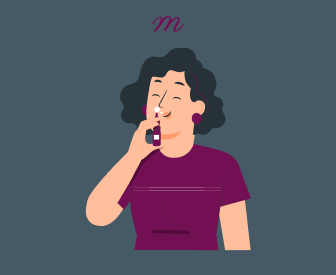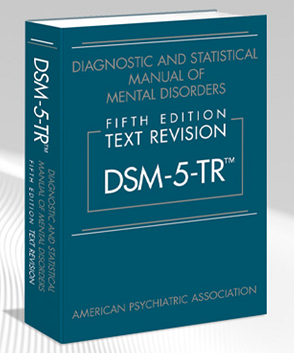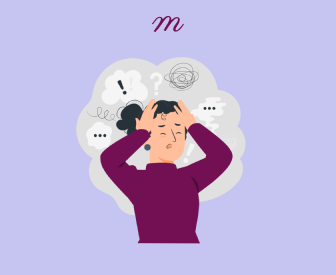Have your progress notes written for you automatically
In the embrace of a cozy therapy chamber, a poignant tale unfolds, interweaving threads of resilience and transformation in the battle against depression. Allow me to introduce you to John, a courageous spirit navigating the shadowy realms of depression, seeking solace within the tender care of their empathetic therapist.
Who doesn’t fear it? Depression, speaking from experience, is a relentless weight that dims the colors of existence, turning vibrant landscapes into monochromatic desolation. It is a battle fought in silence, where the heartache is profound but often unseen.
Well, while occasional feelings of sadness are a universal human experience, not all individuals grappling with these emotions necessarily receive a clinical diagnosis of depression. So, how does a medical expert discern whether one is indeed experiencing depression?
The criteria lie within the Diagnostic and Statistical Manual of Mental Disorders, specifically the fifth edition (DSM-5). Within its pages, the DSM-5 meticulously delineates the criteria for clinical depression, serving as the authoritative tool mental health professionals employ to diagnose conditions such as depression.

What Is Depression?
Depression, or major depressive disorder, is a prevalent and serious medical condition that profoundly impacts your emotions, cognitive processes, and behaviors. Fortunately, it is a condition that can be effectively treated. Depression manifests as persistent feelings of sadness and a loss of interest in previously enjoyed activities. It can trigger a range of both emotional and physical issues, impairing your ability to function optimally, both in your professional and personal life.
Symptoms of depression can vary in intensity, encompassing:
- Persistent feelings of sadness or a depressed mood.
- Diminished interest or pleasure in once-enjoyable activities.
- Changes in appetite, leading to unexplained weight loss or gain.
- Disturbed sleep patterns, be it insomnia or excessive sleeping.
- A pervasive sense of fatigue or loss of energy.
- Heightened, aimless physical activity or, conversely, slowed movements and speech, observable by others.
- Feelings of worthlessness or guilt.
- Difficulty concentrating, making decisions, or maintaining coherent thoughts.
- Contemplation of death or suicidal ideation.
For a well-established diagnosis of depression, these symptoms must endure for at least two weeks and signify a notable decline from your previous level of functioning.
Kindly, be aware that it is crucial to exclude underlying medical conditions, such as thyroid disorders, brain tumors, or vitamin deficiencies, which can mimic depressive symptoms. Depression affects approximately 6.7% of adults in any given year and 16.6% of people will experience it at some point in their lives. Although it can emerge at any age, it is commonly prevalent during late adolescence to early adulthood, with women being more susceptible than men. Studies indicate a strong hereditary component, with a 40% likelihood of depression occurring in first-degree relatives.
DSM-5 Criteria
Depression is clinically diagnosed based on specific criteria outlined in the Diagnostic and Statistical Manual of Mental Disorders, Fifth Edition (DSM-5), developed by the American Psychiatric Association. To be accurately diagnosed with depression, individuals must exhibit five or more symptoms from the DSM-5 list, with either a persistently depressed mood or a pronounced loss of interest or pleasure (anhedonia) being present as one of the major criteria.
Below are the diagnostic criteria according to DSM-5 for Major Depressive Disorder (MDD).
Please carefully assess your diagnostic evaluation against this checklist. To establish a diagnosis of MDD, it is necessary that five out of the nine criteria in Section A are marked as BOTH “present” and “sustained.” Furthermore, criteria B and criteria C must be satisfied and items D and E should be distinctly evident.
Section A:
During a continuous two-week period, five or more of the following symptoms must be present, representing a deviation from the individual’s previous functioning. One of these symptoms must either be (1) a persistently depressed mood or (2) a diminished interest or pleasure. (Note: Do not include symptoms attributable to another medical condition).
- Consistently depressed mood for most of the day, nearly every day, as reported subjectively (e.g., feelings of sadness, emptiness, hopelessness) or observed by others (e.g., appearing tearful). (Note: In children and adolescents, irritability may be substituted for depressed mood).
- A marked decrease in interest or pleasure in almost all activities for most of the day, nearly every day, as indicated by either subjective accounts or observations.
- Significant, unintentional weight loss or gain (e.g., more than a 5% change in body weight within a month), or a noticeable change in appetite almost every day. (Note: In children, consider failure to achieve expected weight gain.)
- Frequent insomnia or excessive sleep almost every day.
- Observable psychomotor agitation or retardation almost every day (observable by others, not merely subjective restlessness or slowed-down feelings).
- Persistent fatigue or loss of energy almost every day.
- Daily feelings of worthlessness or excessive, inappropriate guilt (which may be delusional).
- Regular difficulty concentrating or indecisiveness, almost every day (either by subjective account or as observed by others).
- Recurring thoughts of death (not just a fear of dying), recurrent suicidal thoughts without a specific plan, or a suicide attempt or a specific plan for committing suicide.
Criterion B:
These symptoms should be affecting the everyday functioning of the individual, clinically manifesting as significant distress or impairments in social, occupational, or other vital areas of functioning.
Criterion C:
The symptoms should not be attributable to the physiological effects of a substance or another medical condition.
Note: Responses to a significant loss (e.g., bereavement, financial ruin, losses from a natural disaster, a serious medical illness, or disability) may encompass feelings of intense sadness, rumination about the loss, insomnia, poor appetite, and weight loss as noted in Criterion A, which may resemble a depressive episode.
Though these symptoms may be understandable or deemed appropriate in response to the loss, the presence of a major depressive episode in conjunction with the typical reaction to a significant loss should be cautiously considered. This decision inherently requires the exercise of clinical judgment based on the individual’s history and cultural norms for expressing distress in the context of loss.
Criterion D:
The symptoms cannot be better explained by schizophrenia, schizophreniform and schizoaffective disorders, delusional disorders, or other specified and unspecified schizophrenia spectrum and other psychotic disorders.
Criterion E:
There should have been no history of manic or hypomanic-like episodes.
Beware… Grief vs. Depression
Experiencing the loss of a loved one, the termination of a job, or the conclusion of a relationship can be, with no doubt, incredibly challenging. It’s quite common for individuals to develop feelings of sadness or grief in response to such circumstances, and they may even describe themselves as feeling ‘depressed.’
However, it’s essential to recognize that being sad is not the same as having depression. The grieving process is a natural and highly individualized experience. Yes, both grief and depression may involve intense sadness and a withdrawal from everyday activities, yet they also exhibit significant differences:
- In grief, painful emotions often come in waves, interspersed with positive memories of the person who has passed. In major depression, a persistently lowered mood and diminished interest or pleasure in activities typically endure for at least two weeks.
- In grief, individuals usually maintain their self-esteem. In major depression, it’s common to experience feelings of worthlessness and self-loathing.
- In grief, thoughts of death may arise in a sense of reuniting with the deceased loved one. In major depression, thoughts typically revolve around ending one’s own life due to feelings of worthlessness, an inability to cope with pain, or a belief that life is undeserving.
- Grief and depression can coexist, particularly when experiencing a significant loss, such as the death of a loved one, job loss, or surviving a traumatic event (physical assault or a major disaster). When grief and depression occur simultaneously, the grieving process tends to be more intense and extended compared to grief without depression.
It’s crucial to distinguish between grief and depression, as doing so can help individuals access the appropriate help, support, or treatment they need.
How Is Depression Treated?
Depression stands out as one of the most treatable mental disorders, with an impressive 80% to 90% of individuals eventually experiencing significant improvement through treatment. Virtually all patients find some relief from their symptoms.
Prior to diagnosing or initiating treatment, a comprehensive diagnostic assessment, comprising interviews and physical examinations, should be conducted by a healthcare professional. Occasionally, a blood test may be required to rule out potential medical causes, such as thyroid issues or vitamin deficiencies, which can manifest as depression-like symptoms.
This evaluation will pinpoint specific symptoms as per the DSM-5 criteria, delve into medical and family histories, and explore cultural and environmental influences, all with the ultimate aim of reaching a diagnosis and devising a personalized treatment plan.
Medication
The chemical makeup of the brain can play a pivotal role in an individual’s depression and, as such, may be considered when tailoring their treatment. Antidepressants are sometimes prescribed to modify brain chemistry. It’s crucial to clarify that these medications are neither sedatives nor stimulants, and they are not habit-forming.
While some improvement may be noticeable within the first couple of weeks of use, the full benefits may take two to three months to materialize. If a patient experiences minimal or no improvement after several weeks, their psychiatrist can adjust the medication dosage or introduce an alternative antidepressant.
Psychiatrists often advise patients to continue taking medication for at least six months after symptom improvement. In specific high-risk scenarios, ongoing maintenance treatment might be suggested to reduce the likelihood of future episodes.
Psychotherapy
Psychotherapy, commonly referred to as “talk therapy,” is sometimes employed as a stand-alone treatment for mild depression. In cases of moderate to severe depression, psychotherapy is frequently combined with antidepressant medication.
Cognitive behavioral therapy (CBT) has demonstrated effectiveness in treating depression. CBT centers on present problem-solving, aiding individuals in recognizing and modifying negative or distorted thinking patterns to respond more positively to challenges.
Psychotherapy can involve individual sessions or incorporate other individuals, such as family or couples therapy. Group therapy fosters a supportive environment by bringing together people facing similar challenges, allowing participants to learn from one another’s coping strategies.
The duration of treatment varies depending on the severity of depression, with significant improvements often occurring within 10 to 15 sessions.
Electroconvulsive Therapy (ECT)
ECT, primarily reserved for severe depression cases that are unresponsive to other therapies, involves brief electrical stimulation of the brain under anesthesia. Typically administered two to three times weekly, patients receive a total of six to 12 treatments. ECT is now recognized as an effective last-resort treatment.
Self-help and Coping
Several self-help strategies can alleviate depression symptoms:
- Regular exercise
- Ensuring adequate, quality sleep on a consistent basis
- Maintaining a healthy diet, and abstaining from alcohol (a depressant) can also contribute to symptom reduction.
Conclusion
Depression is a genuine medical condition, and assistance is readily available. With proper diagnosis and treatment, the vast majority of individuals can overcome depression. Your job as a well-rounded professional is to pave the way for your patients to win the battle against depression. And if you need help along the way, remember, Mentalyc is here for you!
References
- National Institute of Mental Health. (2020). Depression. https://www.nimh.nih.gov/health/topics/depression
- American Psychiatric Association. (2020). Practice guideline for the treatment of patients with major depressive disorder. https://www.psychiatry.org/psychiatrists/practice/clinical-practice-guidelines










